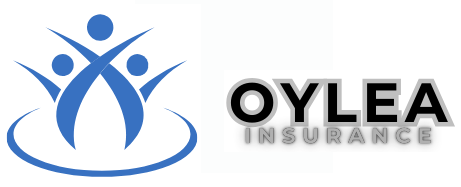
Empowering Heirs Through Education and Mentorship: Building Confidence Without Early Wealth Transfer
Investing in Knowledge: The Foundation of Financial Wisdom
Preparing heirs begins with imparting essential financial literacy. Education serves as the cornerstone for making informed decisions and understanding the value of money. Instead of handing over wealth prematurely, parents and benefactors can foster a learning environment where heirs are introduced to budgeting, investing, and the importance of financial discipline. This approach ensures that when they do inherit, they are equipped with the knowledge and confidence to manage their assets responsibly, preventing impulsive spending or mismanagement.
Mentorship: Cultivating Character and Practical Skills
Beyond formal education, mentorship plays a pivotal role in shaping heirs’ attitudes towards wealth. Engaging them in real-world experiences, such as participating in charitable activities, entrepreneurial ventures, or family business discussions, helps build their leadership skills and ethical perspective. This hands-on approach nurtures resilience, responsibility, and humility, qualities that are often overlooked in traditional inheritance plans but are crucial for sustainable wealth management. Through mentorship, heirs learn that true empowerment comes not from the size of the inheritance but from their ability to steward wealth wisely over time.
Strategic Estate Planning: Preserving Wealth and Fostering Responsibility for Future Generations
Effective estate planning extends beyond the mere transfer of assets; it is about creating a legacy that sustains and enriches future generations. This approach involves crafting a comprehensive strategy that balances the preservation of wealth with the cultivation of personal responsibility among heirs. Rather than rushing to pass on sizeable inheritances, prudent estate planning emphasizes the importance of structured frameworks that ensure assets are protected from unnecessary taxation, legal disputes, and potential mismanagement.
Incorporating tools such as trusts and estate freezes allows benefactors to maintain control over their wealth while gradually transferring decision-making authority to heirs. These instruments serve as safeguards, enabling families to specify conditions, milestones, or educational requirements that heirs must meet before gaining full access. This not only helps preserve the estate’s value but also fosters a sense of accountability and maturity in upcoming generations. Ultimately, strategic estate planning becomes an act of stewardship—one that ensures wealth is a tool for growth rather than a source of discord or decay.
Moreover, aligning legal structures with clear communication about values and expectations can reinforce responsible behavior. Establishing family governance councils or involving heirs in philanthropic decisions cultivates a culture of giving and ethical responsibility. These initiatives transform inheritance from a passive gift into an active opportunity for heirs to develop skills, uphold legacy principles, and contribute meaningfully to society. Through such deliberate planning, families lay the groundwork for a resilient, purpose-driven inheritance—one that endures through generations, fostering both wealth preservation and moral integrity.
Cultivating Financial Literacy and Values: Shaping Responsible Heirs Without Giving Away the Fortune
Building a Foundation of Purposeful Education
In the journey to prepare heirs for a future of responsible wealth management, fostering a deep understanding of core financial principles is paramount. It’s not merely about teaching how to balance a checkbook but about instilling a sense of purpose behind financial decisions. Encouraging heirs to explore real-world scenarios through simulations, case studies, or involvement in family business activities allows them to grasp the complexities of economic choices. Such experiential learning transforms abstract concepts into tangible skills, laying the groundwork for sound judgment and ethical responsibility. By emphasizing the importance of deliberate financial education, families can cultivate heirs who see wealth as a tool for positive impact rather than a symbol of status.
Embedding Values That Transcend Money
Beyond the nuts and bolts of finance, shaping heirs’ character requires a deliberate focus on core values. Families committed to legacy often emphasize virtues such as humility, integrity, and social responsibility. These principles serve as the moral compass that guides heirs through dilemmas related to wealth, ensuring they understand that true success encompasses more than just accumulation. Engaging heirs in philanthropic endeavors or community service projects can be transformative, offering firsthand experience of giving back and fostering a sense of purpose. Such initiatives reinforce that wealth’s true power lies in its capacity to uplift others and uphold family values across generations.
Ultimately, the goal is to create a mindset where financial literacy and ethical values are intertwined—empowering heirs to make decisions rooted in responsibility and compassion. This holistic approach ensures that when they inherit, they do so not just with a bank account balance, but with a well-rounded perspective that honors the family’s legacy and societal contributions.
